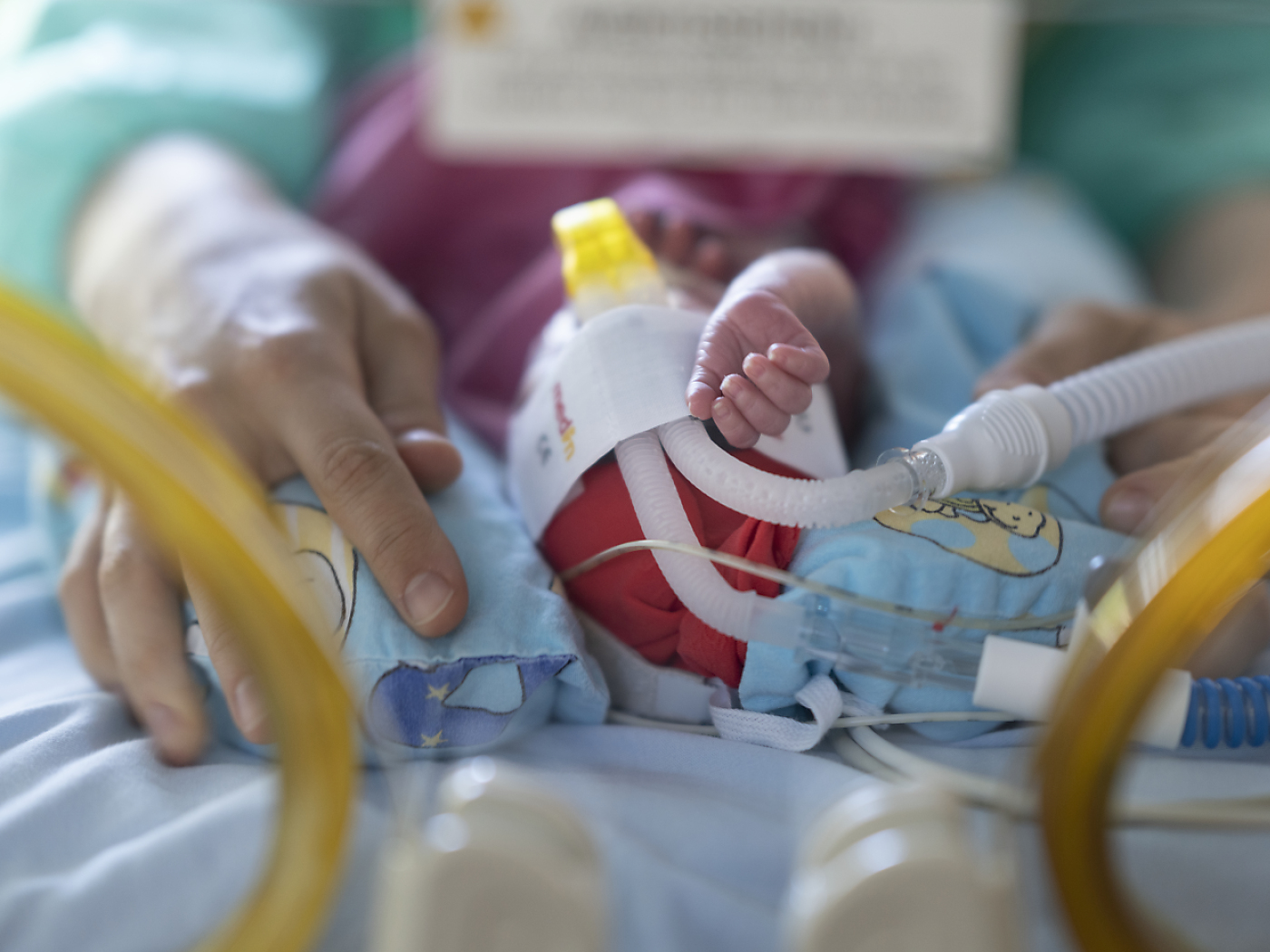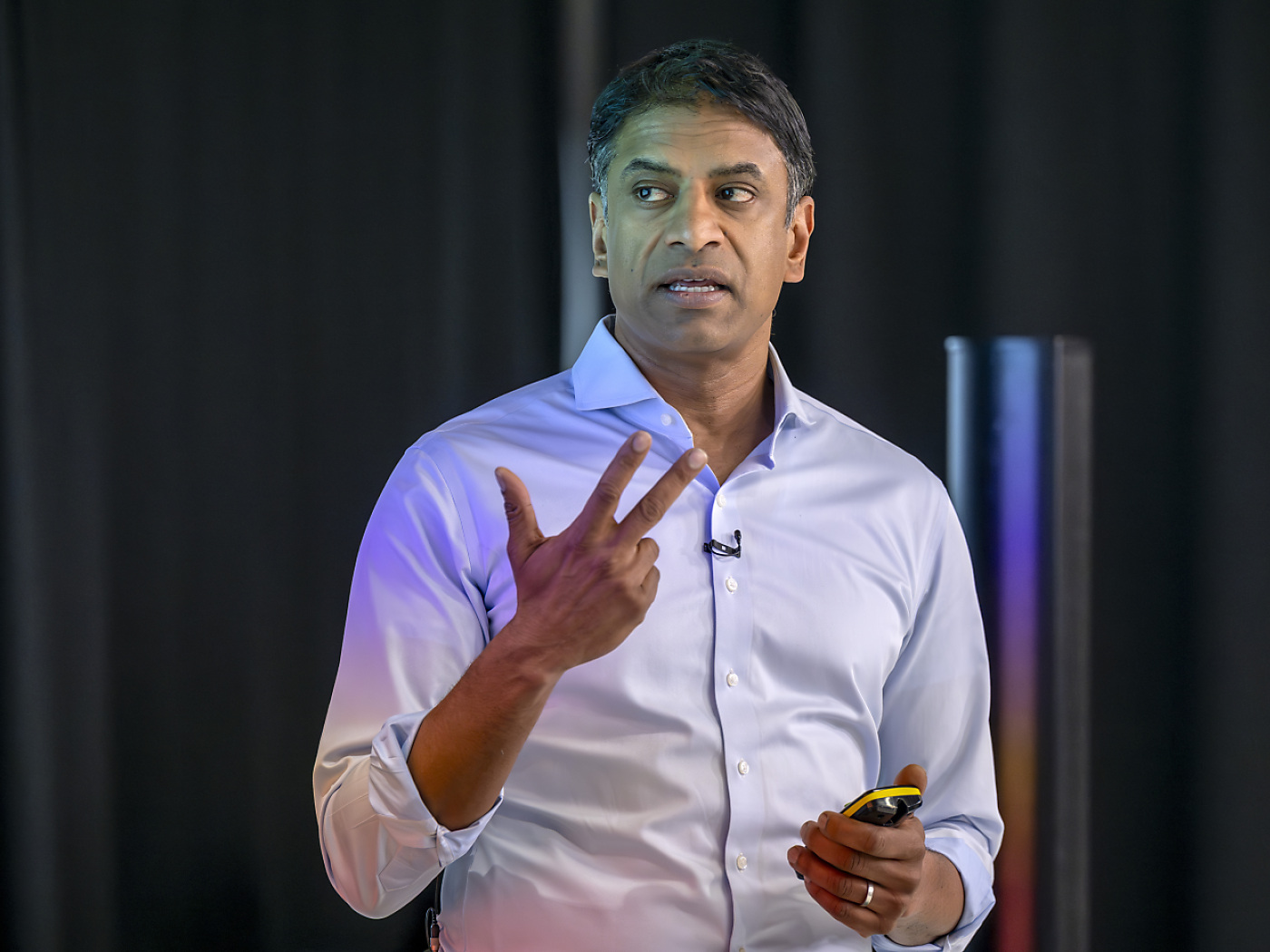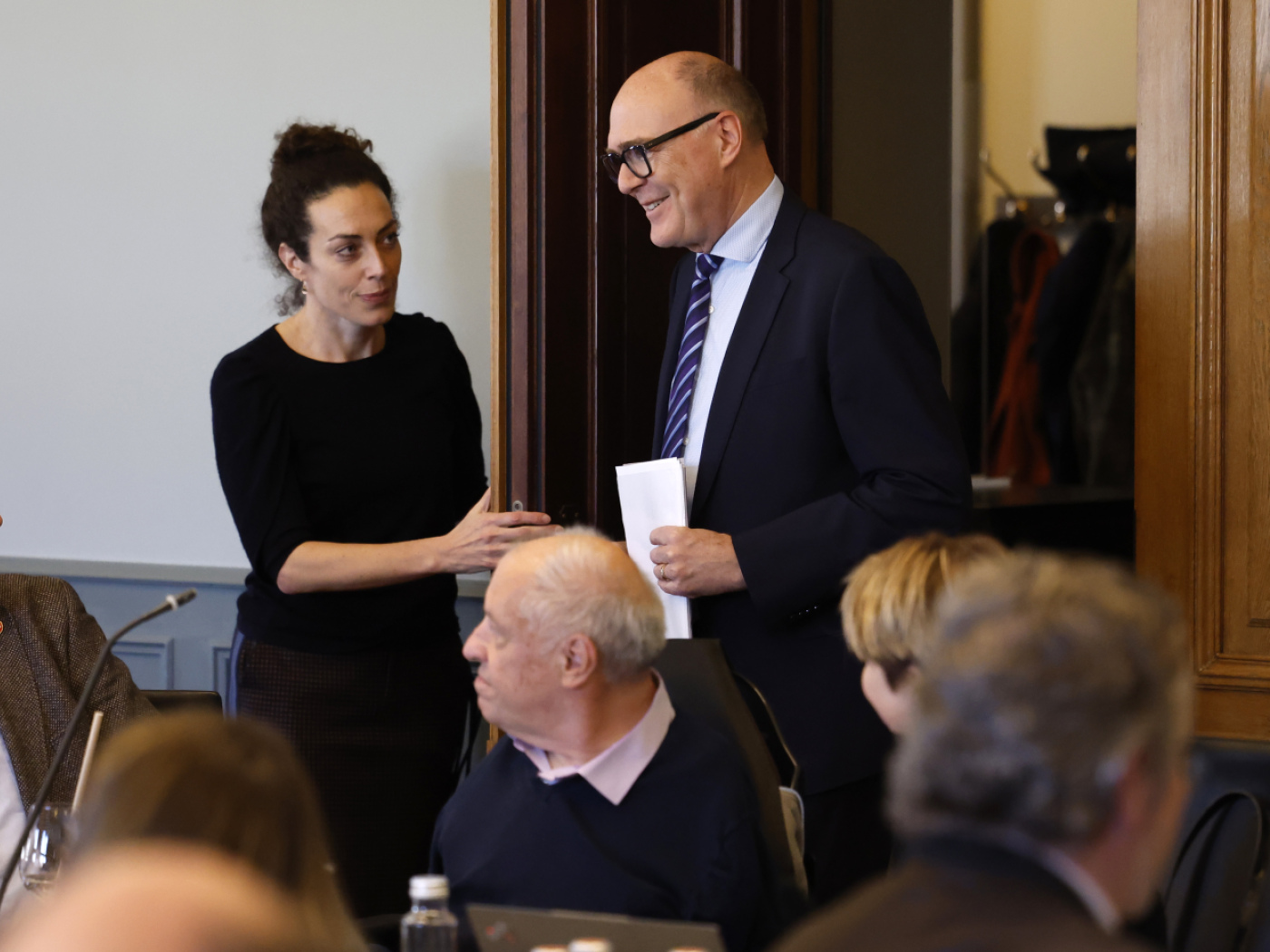Music strengthens brain connections in premature babies, Swiss study shows

In premature babies, music strengthens connections in certain areas of the brain, according to a years-long study by the University Hospitals of Geneva (HUG). Researchers now know more clearly which areas of the brain respond to music.
Children who were born prematurely are more likely to suffer from deficits in attention or emotional control, among other things. For almost ten years, a team supported by the Swiss National Science Foundation (SNSF) has been studying an original solution to prevent these problems: music.
+Get the most important news from Switzerland in your inbox
Scientists at the University Hospitals of Geneva exposed several cohorts of infants born at an average of 29 weeks to music. Their latest study, published in the journal Imaging Neuroscience, shows that music strengthens cerebral connectivity in areas of the brain normally affected in premature babies.
The latest cohort of the programme included 60 premature babies, 32 of whom were exposed to music, while 28 served as a control group. In MRIs, improvements were visible as early as 33 weeks of age, the SNSF said in a press release on Tuesday.
+ Children with autism view film images differently, Swiss study finds
The scientists observed better development of connections between certain areas, notably in the brain’s so-called “salience” network, which is used to identify sounds or other stimuli and recognise their importance or socio-emotional relevance.
Connections between two brain regions (the insular cortex and the anterior cingulate cortex) are notably involved in the faculty of salience. “Children born prematurely almost always show reduced connectivity in this network, and this characteristic persists into adulthood,” explains Petra Hüppi, head of the research programme, quoted in the press release.
Music by Zurich-based composer Andreas Vollenweider
The scientists used eight-minute musical samples to accompany each newborn individually, using headphones, at the transitional moments between sleep and wakefulness. Zurich-based composer Andreas Vollenweider designed ad-hoc pieces that punctuate the infant’s daily rhythm in a soothing way: melodies that babies can learn to recognise.
+ Switzerland opens competence centre for scientific integrity
While the effects of music therapy are clearly visible in MRIs, it is still too early to determine whether the approach has any long-term benefits. But scientists may soon find out more with the first cohort of patients, born in 2016.
These 20 children are now turning eight, an appropriate age to take another look at brain activity under MRI, and to pass cognitive and behavioural tests. Work is currently in progress. The SNSF concludes that, should concrete benefits be confirmed, music could be integrated into neonatal intensive care units worldwide.
Translated from French with DeepL/gw
This news story has been written and carefully fact-checked by an external editorial team. At SWI swissinfo.ch we select the most relevant news for an international audience and use automatic translation tools such as DeepL to translate it into English. Providing you with automatically translated news gives us the time to write more in-depth articles.
If you want to know more about how we work, have a look here, if you want to learn more about how we use technology, click here, and if you have feedback on this news story please write to english@swissinfo.ch.

In compliance with the JTI standards
More: SWI swissinfo.ch certified by the Journalism Trust Initiative


















You can find an overview of ongoing debates with our journalists here . Please join us!
If you want to start a conversation about a topic raised in this article or want to report factual errors, email us at english@swissinfo.ch.